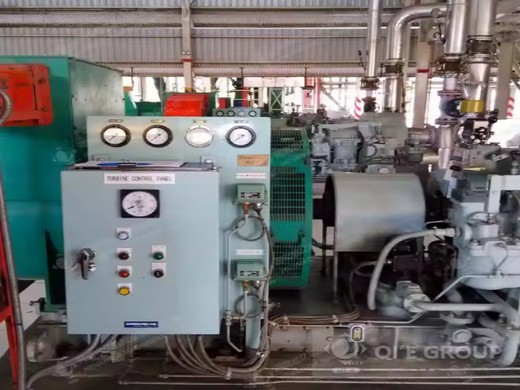Ecuador Takes Giant Step Towards Certified
Ecuador Takes Giant Step Towards Certified Sustainable Palm Oil Production News 30 March 2025 QUITO (Ecuador), March 30, 2025 The Roundtable on Sustainable Palm Oil (RSPO) congratulates the Ecuadorian national government, civil society and the producers of palm oil, after signing the commitment to continue the process of RSPO Jurisdictional
QUITO, ECUADOR Ecuador’s oil palm industry has taken what many see as another step forward by committing to a jurisdictional RSPO system as a way to transform the entire sector by making it cleaner and more sustainable. But some wonder if a commitment to RSPO is enough, considering the industry’s questionable reputation in some parts
Can Ecuador do palm oil right? A jurisdictional RSPO
Ecuador is the sixth largest palm oil producing country in the world and the second largest in Latin America. While most of its oil palm plantations have been developed on degraded land, an estimated 6 percent of cultivated area has come at the expense of natural forest. Conservationists worry this will increase as the country’s []
The government of Ecuador is partnering with palm oil stakeholders to develop a jurisdictional approach towards RSPO certification. Ecuador is to one of the most biologically diverse places on Earth. A joint effort is critical to the preservation of biodiversity and the future of sustainable palm oil in Latin America.
MG_65801 news.mongabay
Land recently cleared for an oil palm plantation in Ecuador's province of Esmeraldas. Africa Amazon Asia Australia Borneo Brazil Cameroon Central America Colombia Congo India Indonesia
QUITO (Ecuador), March 30, 2025 La RSPO felicita y apoya al gobierno nacional, a la sociedad civil y a los actores de la cadena productiva del aceite de palma en Ecuador, al suscribir el día 29 de marzo, 2025 el Acta de Compromiso para continuar el proceso de Certificación Jurisdiccional RSPO con miras a la certificación nacional, pionero en América Latina.
Central Kalimantan Announces Jurisdictional
Jakarta, Indonesia, June 24, 2025 The government of Central Kalimantan has committed to develop a jurisdictional approach to sustainable production of palm oil. The initiative was launched with the declaration of the “Central Kalimantan’s Pathway to Low-Emission Rural Development”, which was signed by Dr Agustin Teras Narang, Governor of Central Kalimantan, in conjunction with the
Ecuador is the sixth largest palm oil producing country in the world and the second largest in Latin America. While most of its oil palm plantations have been developed on degraded land, an estimated 6 percent of cultivated area has come at the expense of natural forest. Conservationists worry this will increase as the []
Palm oil expansion in tropical forest margins or
On the other hand, subnational jurisdictional entities are the scale at which oil palm production can be balanced with other goals, such as forest conservation and smallholder welfare. Discover
Archive of Khor Reports' Palm Oil Blog, Jan 2011 Feb 2018
- What is palm oil governance in Ecuador?
- In Ecuador, palm oil governance is increasingly driven by a transnational regime of private and public institutions of governance. The state has pursued an alternative model of governance that harmonizes private regulatory instruments with national economic plans.
- Are RSPO standards affecting domestic palm oil governance?
- Drawing on extended fieldwork, the paper finds that the introduction of RSPO standards has prompted three major shifts in domestic palm oil governance. These shifts are: 1) technicalization of community-company relations, 2) hybridization of governance coalitions 3) regionalization of governance efforts.
- How do RSPO standards affect communities impacted by palm oil expansion?
- Although innovative public and private coalitions forging new synergies and governing approaches have emerged as a result of the introduction of RSPO standards, these arrangements have continued to uphold structures that typically exclude communities most impacted by palm oil expansion.
- Do RSPO-certified palm oil companies have a role in palm oil governance?
- Given this information, the findings of this study represent important shifts in palm oil governance involving 40% of Ecuador’s RSPO-certified companies. Fieldwork locations included the capital of Quito and the major palm-producing provinces of Esmeraldas, Sucumbíos and Orellana, with visits lasting between 1 and 10 months.
- How many palm oil companies are RSPO members?
- Data referenced in this paper is derived from employee interviews representing 6 major palm oil companies (5 large and 1 medium) who are RSPO members and have active palm operations in the Amazon region. There are approximately 15 corporate RSPO members in Ecuador (RSPO.org, 2021b).
- Is RSPO-certified palm oil a sustainable biofuel?
- As a culmination of these efforts, a National Interpretation of the RSPO standards was recently launched (Johnson, 2019). 1 In part, enthusiasm for the RSPO among domestic commercial actors reflects the inclusion of RSPO-certified palm oil as a sustainable biofuel by the European Union.






